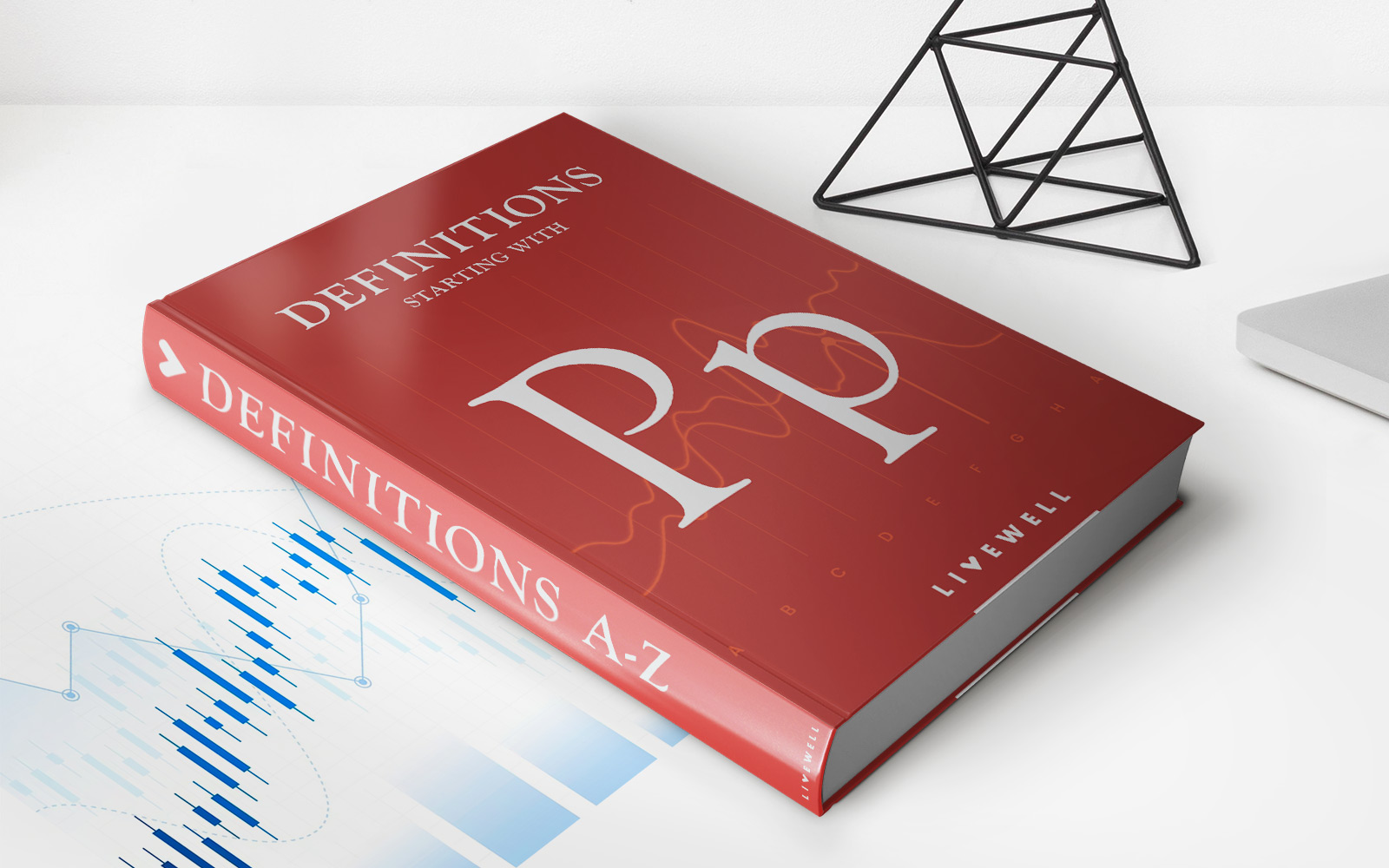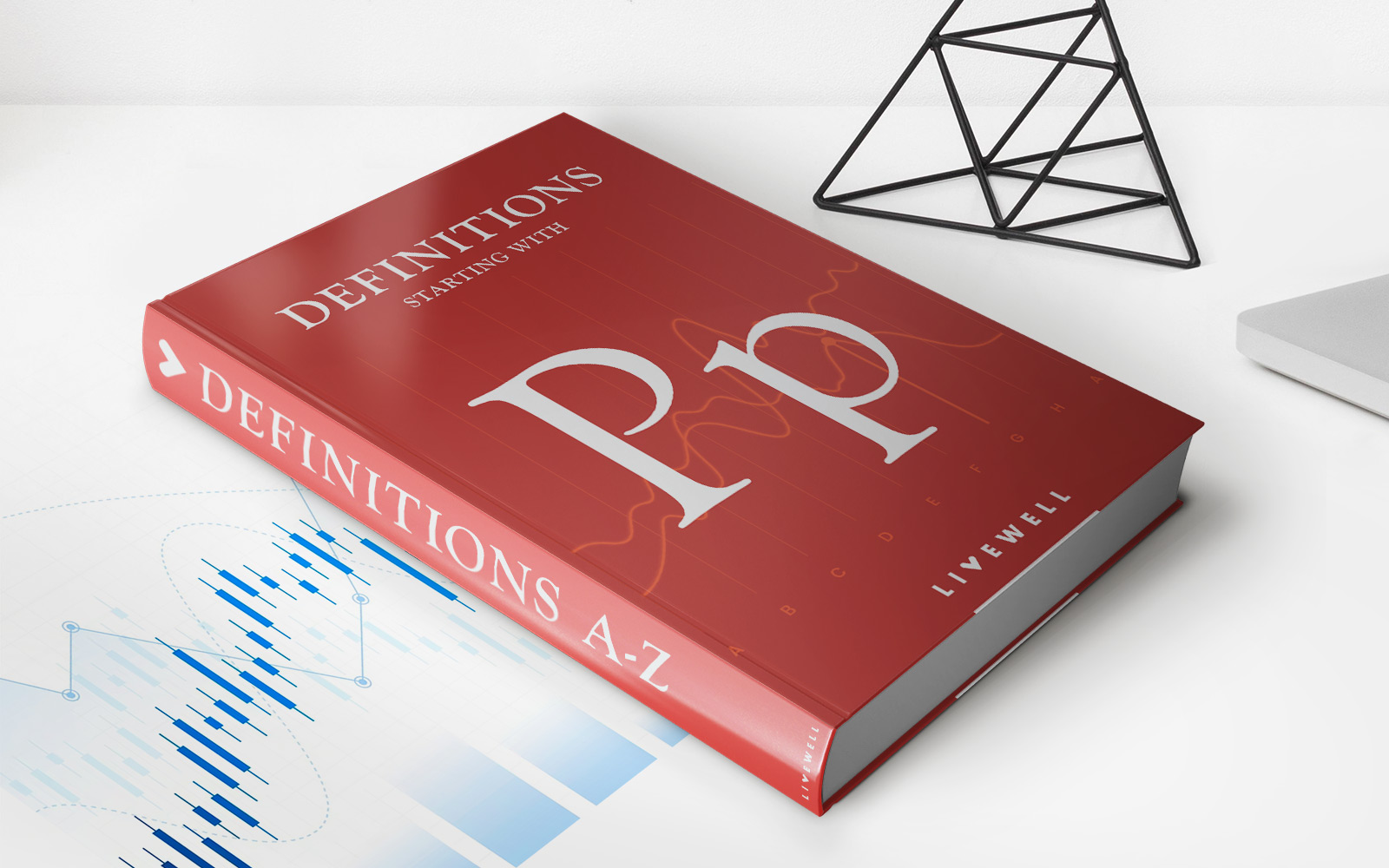Home>Finance>What To Bring For Your Visit To A Financial Advisor


Finance
What To Bring For Your Visit To A Financial Advisor
Modified: December 30, 2023
Looking for financial advice? Discover what to bring to your financial advisor to ensure a successful consultation and make the most of your finance goals.
(Many of the links in this article redirect to a specific reviewed product. Your purchase of these products through affiliate links helps to generate commission for LiveWell, at no extra cost. Learn more)
Table of Contents
Introduction
When meeting with a financial advisor, it’s important to come prepared. The more information and documents you bring to your initial consultation, the more productive and effective your meeting will be. Whether you’re seeking guidance on retirement planning, investment strategies, or general financial advice, having the right documents on hand will help your advisor gain a comprehensive understanding of your financial situation, goals, and concerns.
In this article, we will discuss the essential documents and information that you should bring with you to a meeting with a financial advisor. By having these items ready, you will be able to have a more meaningful and personalized conversation, allowing your advisor to provide you with the most accurate and tailored recommendations.
Keep in mind that while it’s important to gather all necessary documents, it’s equally important to maintain their confidentiality and security. Make sure to store them in a safe and secure place after your meeting.
Now, let’s delve into the specific documents and information you should bring when meeting with a financial advisor.
Personal Financial Documents
When meeting with a financial advisor, it’s crucial to provide them with an overview of your personal financial situation. This includes essential personal financial documents that offer insights into your current financial standing. Here is a list of the documents you should gather:
- Personal identification: Bring a valid ID such as a passport or driver’s license to verify your identity.
- Social Security Card: Your Social Security number will be required for various financial transactions and documentation.
- Proof of residence: Bring a utility bill or lease agreement to verify your current address.
- Marriage and divorce documents: If applicable, provide your marriage certificate or divorce decree to indicate your marital status.
- Wills and trusts: If you have any, bring copies of your wills and trusts, as well as any related documentation.
- Power of attorney documents: If you have granted someone power of attorney, provide the relevant documents.
Gathering these personal financial documents will help establish your identity, marital status, and any legal arrangements that may impact your financial decisions.
Remember to keep these documents in a safe place and ensure their confidentiality. Your financial advisor will use them solely for the purpose of providing you with personalized guidance and recommendations.
By having your personal financial documents in order, you can facilitate a more productive and efficient discussion with your financial advisor. They’ll be able to assess your overall financial situation and provide you with tailored advice that aligns with your specific needs and goals.
Banking Information
One vital aspect of your financial picture is your banking information. Your financial advisor will need a clear understanding of your banking accounts and transactions to provide you with suitable advice. Here is the banking information you should gather:
- Bank statements: Collect recent statements for all your bank accounts, including checking, savings, and any other accounts you may have. These statements will show your account balances, transaction history, and any fees or charges associated with your accounts.
- Credit card statements: Bring copies of your recent credit card statements to provide your advisor with a comprehensive overview of your credit card usage, outstanding balances, and any interest or fees incurred.
- Loan details: If you have any outstanding loans, such as a mortgage, car loan, or personal loan, gather the loan documents, payment statements, and the remaining balance.
- Banking login information: It’s helpful to have login credentials for your online banking accounts. This allows your advisor to access real-time information about your accounts and transactions, making the analysis more accurate and up-to-date.
By providing your financial advisor with this banking information, they can assess your cash flow, analyze your spending habits, and identify areas for potential improvement. They can also offer guidance on how to optimize your banking structure to align with your financial goals.
Remember to safeguard your banking information, especially your login credentials. Sharing this information is strictly at your discretion, and you should only provide it to your advisor if you trust them explicitly.
With your banking information organized and ready, you will have a more fruitful discussion with your financial advisor. They can better evaluate your overall financial health and recommend strategies to manage your money more effectively and efficiently.
Tax Documents
As tax season approaches, it’s essential to gather all the necessary tax documents to provide your financial advisor with a comprehensive view of your tax situation. These documents will help them assess your tax liability, identify potential deductions or credits, and offer guidance on tax planning strategies. Here are the tax documents you should bring:
- W-2 forms: Collect all your W-2 forms, which report your annual salary and taxes withheld by your employer.
- 1099 forms: Gather any 1099 forms received from clients or employers if you work as an independent contractor or freelancer.
- Income statements: Provide documentation of additional income sources, such as rental income, investment income, or side businesses.
- Previous tax returns: Having copies of your previous tax returns will give your advisor insight into your tax history and help identify any recurring patterns or opportunities for tax optimization.
- Receipts and expense records: Compile receipts and records of deductible expenses, such as business expenses, medical expenses, charitable contributions, or education-related expenses.
- Documentation for deductions and credits: If you have specific deductions or credits you intend to claim, gather the necessary documentation, including mortgage interest statements, student loan interest statements, and healthcare expenses.
By providing your financial advisor with these tax documents, they can help you navigate the complexities of the tax system, maximize your deductions, and ensure compliance with tax laws. They can also offer tax planning strategies to optimize your financial situation throughout the year.
Remember to keep your tax documents organized and secure as you gather them. Safeguarding your sensitive financial information is crucial to protect against identity theft or unauthorized use.
With your tax documents in order, you’ll be well-prepared to discuss tax planning and strategies with your financial advisor. They can guide you in making informed decisions and take advantage of any available tax benefits.
Investment Statements
If you have investments, it’s vital to provide your financial advisor with current investment statements. These statements will give them valuable insights into your investment portfolio, asset allocation, and performance. Here are the investment statements you should gather:
- Brokerage statements: Gather recent statements from your brokerage accounts that detail your investments, including stocks, bonds, mutual funds, and exchange-traded funds (ETFs).
- Retirement account statements: Bring statements from your retirement accounts, such as 401(k), individual retirement accounts (IRAs), or pension plans. These statements will show your contributions, account balances, and investment choices.
- Annuity or insurance policy statements: If you own annuities or have life insurance policies, provide your advisor with the relevant documentation, including policy details and current cash values.
- Investment performance reports: If you have reports that summarize the performance of your investments, whether from your brokerage or financial institution, include them as well. These reports help your advisor assess the performance of your investment portfolio.
- Investment objectives and risk tolerance: Alongside your investment statements, it’s valuable to communicate your investment objectives and risk tolerance to your advisor. This information helps them align your investment strategy with your financial goals and risk preferences.
By sharing your investment statements, performance reports, and goals, your financial advisor can evaluate the diversification, risk exposure, and overall performance of your investment portfolio. They can offer advice on asset allocation, rebalancing, or potential investment opportunities to align your investments with your financial objectives.
Remember to keep these investment documents confidential and secure. Treat them as financial assets and store them safely to protect your sensitive investment information.
With your investment statements in hand, you can engage in an in-depth discussion with your financial advisor about your investment strategy, risk management, and potential opportunities that align with your long-term financial goals.
Insurance Policies
Insurance plays a crucial role in protecting your financial well-being and providing peace of mind. When meeting with a financial advisor, it’s important to bring relevant insurance policy information to ensure a comprehensive understanding of your coverage. Here are the insurance policies you should gather:
- Life insurance policies: Provide copies of your life insurance policies, including details on coverage amounts, beneficiaries, and premium payments.
- Health insurance policies: Bring your health insurance policy documents, which outline your coverage, deductibles, co-pays, and any limitations or exclusions.
- Auto insurance policies: Include documentation of your auto insurance coverage, including policy details, coverage limits, and premium payments.
- Homeowners or renters insurance policies: If you own a home or rent a property, provide your homeowners or renters insurance policy details, including coverage amounts, deductibles, and liability coverage.
- Disability insurance policies: If you have disability insurance, gather the policy documents that outline the terms, coverage limits, and waiting periods for potential claims.
- Other insurance policies: If you have any additional insurance policies, such as umbrella insurance, long-term care insurance, or specialty insurance policies, bring the relevant documentation.
By sharing your insurance policies with your financial advisor, they can evaluate your coverage, identify any gaps or overlaps, and provide recommendations to ensure you have adequate protection. They can also help you understand the costs, benefits, and implications of your insurance policies in relation to your overall financial plan.
Remember to keep your insurance policies in a secure location and inform trusted individuals, such as your spouse or beneficiaries, of their existence and location. Regularly review your policies to ensure they align with your changing needs and circumstances.
With your insurance policy documents in hand, you can have a more comprehensive discussion about risk management, protection strategies, and potential adjustments to your insurance coverage with your financial advisor.
Retirement Savings Information
Planning for retirement is a critical aspect of your financial journey, and providing your financial advisor with relevant retirement savings information is essential. This information will help them assess your retirement goals, evaluate your current savings, and develop strategies to ensure a comfortable retirement. Here are the key retirement savings details you should gather:
- Retirement account statements: Bring statements from your retirement accounts, such as a 401(k), IRA, or pension plans. These statements will provide your advisor with insights into your current retirement savings, contributions, investments, and any employer matching contributions.
- Social Security statements: Include your most recent Social Security statement, which outlines your estimated benefits based on your earnings history and projected retirement age.
- Pension information: If you have a pension plan, provide details about the plan, including your anticipated pension amount and any related documentation.
- Other retirement savings: If you have additional retirement savings, such as annuities or individual investments earmarked for retirement, include information about those as well.
By sharing your retirement savings information, your financial advisor can assess the adequacy of your retirement funds, determine any gaps that need to be addressed, and recommend strategies to ensure your future financial security.
Remember to keep your retirement account statements and other retirement savings documents in a safe place. Regularly review your retirement savings strategy and consult with your advisor to ensure you stay on track towards your retirement goals.
With your retirement savings information in hand, you can engage in a meaningful conversation with your financial advisor about retirement planning, investment strategies, and potential adjustments to maximize your savings and achieve a comfortable retirement lifestyle.
Debt Information
Debt is a significant component of your financial picture, and providing your financial advisor with accurate debt information is crucial for a comprehensive analysis of your financial health. By sharing your debt details, your advisor can assess your debt-to-income ratio, interest rates, and repayment strategies. Here are the key debt information items you should gather:
- Mortgage statements: Bring statements for your mortgage loans, including the outstanding balance, interest rate, monthly payment, and any escrow account details.
- Auto loan statements: Include statements for any auto loans, noting the remaining balance, interest rate, and monthly payments.
- Student loan statements: Gather statements for your student loans, indicating the outstanding balance, interest rate, and repayment terms.
- Credit card statements: Provide statements for all your credit cards, including balances, interest rates, minimum payments, and any other outstanding debts.
- Personal loan information: If you have any personal loans, collect the relevant details, including the loan amount, interest rate, and repayment terms.
In addition to the above, it’s important to communicate any other outstanding debts you may have, such as medical bills or outstanding tax obligations.
By sharing your debt information, your financial advisor can evaluate your overall debt load, identify opportunities to consolidate or refinance debt, and help you establish a customized debt repayment strategy. They can also provide guidance on prioritizing debt payments and finding ways to minimize interest costs.
Remember to keep your debt information confidential and secure. Treat it as sensitive financial data and store it in a safe place.
With your debt information organized and ready, you can have an informed discussion with your financial advisor about debt management, repayment strategies, and how to achieve financial freedom by effectively managing your debts.
Budget and Spending Records
Understanding your budget and spending habits is crucial for effective financial planning. Providing your financial advisor with comprehensive budget and spending records will give them valuable insights into your cash flow, expenses, and savings habits. Here’s the information you should gather:
- Monthly budget: Prepare a detailed breakdown of your monthly income and expenses, including fixed expenses (rent/mortgage, utilities, insurance), variable expenses (groceries, transportation, entertainment), and discretionary spending.
- Bank and credit card statements: Gather several months’ worth of bank and credit card statements to provide an accurate picture of your spending patterns. These statements will help your advisor analyze your spending categories and identify areas for potential savings.
- Receipts and expense tracking: If you have been keeping receipts or maintaining an expense tracking system, bring these records as evidence of your day-to-day spending.
- Debt repayments: Include records of your debt repayments, such as loans or credit card payments, to illustrate your commitment to reducing your debt load.
- Savings contributions: Provide documentation of your regular savings contributions, whether to a retirement account, emergency fund, or other savings goals.
By sharing your budget and spending records, your financial advisor can help you evaluate your current spending habits, identify areas where you can make adjustments, and develop a realistic budget that aligns with your financial goals. They can also offer strategies to optimize your budget, improve your savings rate, and ensure your spending aligns with your priorities.
Remember to keep your budget and spending records up-to-date to accurately reflect your financial habits. Regularly review and adjust your budget as needed, and consult with your financial advisor for guidance on making sustainable financial decisions.
With your budget and spending records in hand, you can engage in a meaningful conversation with your financial advisor about managing your cash flow, optimizing your spending, and creating a solid foundation for your financial future.
Financial Goals and Objectives
Defining your financial goals and objectives is a crucial step in your financial journey. Sharing this information with your financial advisor will help them understand your aspirations and work with you to develop a comprehensive plan. Here’s what you should consider when discussing your financial goals and objectives:
- Short-term goals: Identify any specific financial goals you plan to achieve within the next one to three years. These may include saving for a down payment on a house, purchasing a new car, or taking a vacation.
- Medium-term goals: Consider financial milestones you aim to achieve within the next three to ten years. This might involve paying off a significant amount of debt, funding your child’s education, or starting a business.
- Long-term goals: Think about your aspirations for the distant future, typically more than ten years away. This could include planning for retirement, building an investment portfolio, or leaving a financial legacy for your loved ones.
- Financial milestones: Identify key financial milestones you want to reach, such as reaching a certain net worth, paying off a mortgage, or achieving financial independence.
- Risk tolerance: Communicate your comfort level with risk and volatility when it comes to investing. This will guide your financial advisor in developing an investment strategy that aligns with your risk tolerance.
- Values and priorities: Discuss your values and priorities in terms of how you want to allocate your money. This may include supporting charitable causes, sustainability, or investing in socially responsible companies.
By sharing your financial goals and objectives, your financial advisor can help you develop a clear and measurable plan to achieve them. They can assess your current financial situation, recommend appropriate investment strategies, and provide guidance on allocating your resources effectively.
Remember that financial goals may evolve over time, and it’s important to review and update them regularly. Your financial advisor will work with you to refine your goals as your circumstances change and help you stay on track towards achieving them.
With your financial goals and objectives clearly defined, you can have a focused discussion with your financial advisor, enabling them to create a personalized roadmap that aligns your financial decisions with your aspirations.
Questions and Concerns
When meeting with a financial advisor, it’s crucial to come prepared with any questions or concerns you may have. This is an opportunity to gain clarity, address any uncertainties, and ensure that you fully understand the advice and recommendations provided. Here are some common areas to consider:
- Investment strategy: If you have questions about your current investment strategy or want to explore alternative investment options, bring them up during the meeting. Your financial advisor can provide insights and guidance on creating an investment approach that aligns with your risk tolerance and financial goals.
- Retirement planning: Discuss any concerns or questions you have about your retirement savings, including the adequacy of your current contributions, the timeline for retirement, and potential retirement income sources.
- Risk management: If you have concerns about protecting your assets or mitigating risks, such as insurance coverage or estate planning, address these issues with your financial advisor. They can help you understand the options available and recommend strategies to safeguard your financial well-being.
- Tax planning: Inquire about any potential tax implications of your financial decisions or explore strategies to optimize your tax situation. Your advisor can provide guidance on tax planning opportunities and help you address any concerns regarding tax obligations.
- Financial education: If there are areas of personal finance that you want to better understand, such as budgeting, debt management, or investing, take the opportunity to ask questions and seek clarification from your advisor. They can provide educational resources and explanations to enhance your financial knowledge.
Remember that no question is too small or insignificant. Your financial advisor is there to provide guidance and support, and addressing your questions and concerns is an essential part of their role.
Prepare a list of questions and concerns before the meeting to ensure that all your queries are addressed. Clear communication is key to building a strong working relationship with your advisor and ensuring that all aspects of your financial situation are well-managed.
With your questions and concerns on the table, you can have an open and productive discussion with your financial advisor. This will foster a deeper understanding of your financial situation and allow your advisor to provide tailored advice that addresses your specific needs and priorities.














